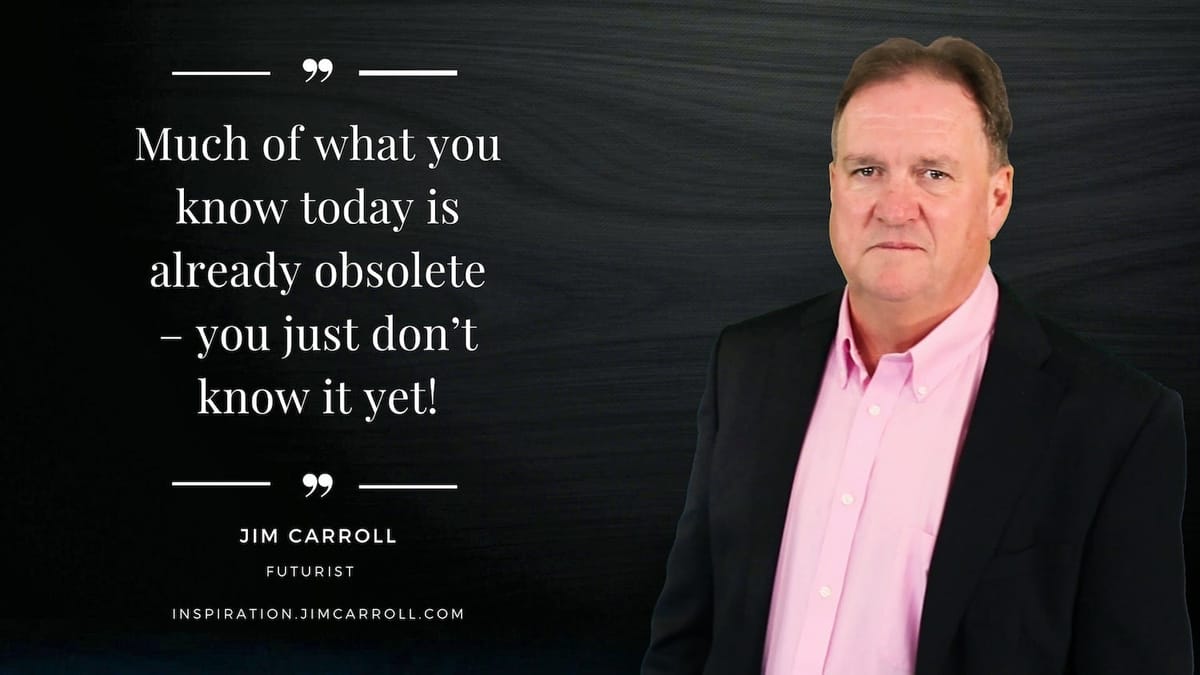Knowledge isn't just fleeting - it's increasingly obsolete almost as soon as it is acquired.
We live in the era of the acceleration of all knowledge. These are the trends that define the future:
- Rapid knowledge obsolescence
- Rapid knowledge emergence
- The disappearance of existing careers due to 1)
- The rapid emergence of new careers due to 2)
- An ongoing need for continuous knowledge replenishment because of 1-4
- The result is the arrival of a need for just-in-time knowledge
- And a world in which learning is what most adults will do for a living
- All happening in the context of the fast emergence of new micro-careers because of specialized knowledge
- And an economy that succeeds through knowledge deployment
- All demanding a fundamental transformation in knowledge delivery
Here's a fun fact about knowledge - prior to Covid, it's estimated that the volume of medical knowledge was doubling every six to 8 years. It's now estimated to be doubling every 78 days, if not faster! No one medical professional can keep up; all medical knowledge is almost instantly out of date, replaced by new insights, new forms of diagnoses, new methodologies, new forms of treatment, and new forms of measurement and analysis. Medical professionals are now increasingly reliant on their knowledge navigation skills - the ability to absorb that which is new is fundamental to success.
That's but one example -all professions, careers, and skills are impacted in similar ways. In construction, for example, new methods, new materials, and new priorities, such as eco-design and the increasing dominance of renewable energy technologies in the design process are changing the way buildings are built. In manufacturing, one client suggested that the typical machinist today almost needs to know how to do trigonometry in their heads. Car mechanics? They're focused less on fixing actual car parts and more on diagnosing computer problems - and tomorrow, they'll have to be battery technology specialists.
In every profession and career, the ability to keep up with new knowledge and to act upon it defines success.
In a world of fast knowledge development, none of us will have the capability to know much of anything at all. The most important skill we will have will be the ability to go out to get the right knowledge for the right purpose at the right time - hence, just-in-time knowledge!
You didn't know that, but now you do, and tomorrow, you'll know something new too!

